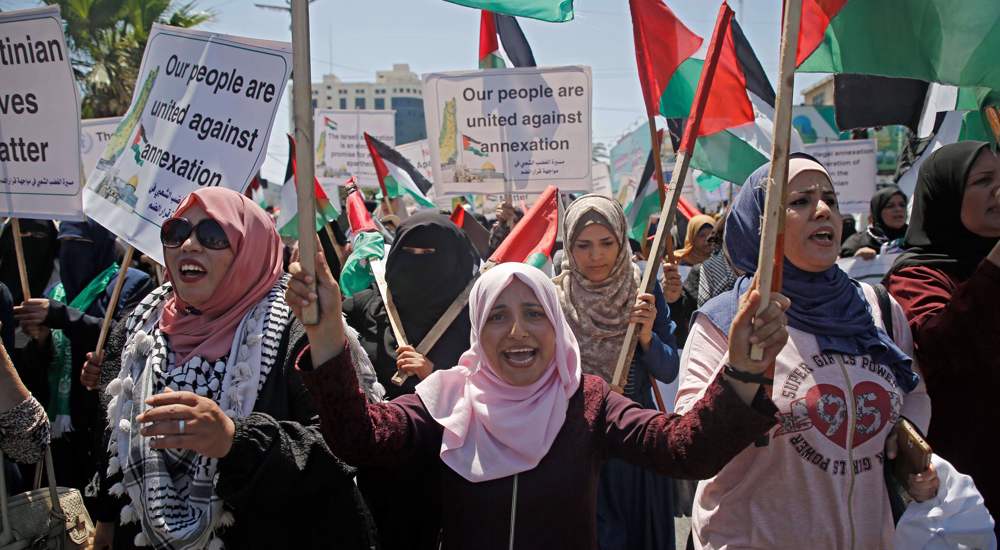Alwaght- A third intifada (uprising) could be just around the corner if Israeli regime continues its controversial plan to annex parts of the occupied Palestinian territories, an adviser to Palestinian President Mahmoud Abbas has warned on Saturday.
Speaking to France 24 Arabic on Saturday, Nabil Shaath said that the two major Palestinian groups Hamas and Fatah, which are based in the Gaza Strip and the West Bank respectively, are in agreement about a new intifada if Israel annexes the West Bank.
“When things flare up and it becomes a fully-fledged intifada, we will see a combination of forces between Gaza and the West Bank,” he said.
Shaath also noted that he expected the potential Palestinian uprising to be funded by the Arab world.
The first intifada, which took place in 1987-1993, involved Palestinian demonstrations, mass boycotts and general strikes as well as attacks on Israeli forces using rocks, Molotov cocktails, and firearms.
The second intifada featured many more pitched gun battles and bombings. It began in 2000 and lasted until 2005, leaving 3,200 Palestinians and about 1,000 Israelis dead.
Israel's ruling coalition, led by prime minister Benjamin Netanyahu, had announced July 1 as the date to begin moving forward with the scheme to impose “sovereignty” over about a third of the West Bank, including settlements and the fertile Jordan Valley.
The regime, however, failed to launch the land grab bid on the set date amid widening differences between Netanyahu and his coalition partner, minister of military affairs Benny Gantz.
Israeli labor, social affairs and services minister Ofir Akunis stressed that officials were still working out the details of the plan with their American counterparts.
Akunis also said that he expected the annexation to take place later this month after US President Donald Trump issued a declaration on the matter.
The US president had already given Tel Aviv the green light for the land grab in his self-proclaimed “deal of the century,” which was unveiled in January with the aim of re-drawing the Middle East map.
But recently there have been indications of Trump's waning support for the annexation deal, with some analysts arguing that the US president already has too much on his plate to deal with in light of the upcoming elections and the COVID-19 crisis gripping the United States, and therefore is not in a situation to continue his controversial support for Netanyahu's land grab project.
Israel’s planned push to illegally consolidate its occupation of Palestine has drawn fierce international condemnations even from some of the regime's closest allies.
The UN, the EU and key Arab countries have all said the West Bank annexation would violate international law and undermine the prospects of establishing a sovereign Palestinian state on 1967 boundaries.
At a joint press conference on July 2, Hamas and Fatah pledged unity against Israel’s annexation of Palestinian areas and vowed to “topple” Trump's Middle East plan.
Israeli lawmaker Ayman Odeh of opposition Joint List party also attended the conference.
“I’m taking part in the conference in Ramallah to support Palestinian reconciliation moves. Reconciliation between the factions is a necessary step in combating annexation, ending the occupation and achieving a just peace,” he said in a statement.



























